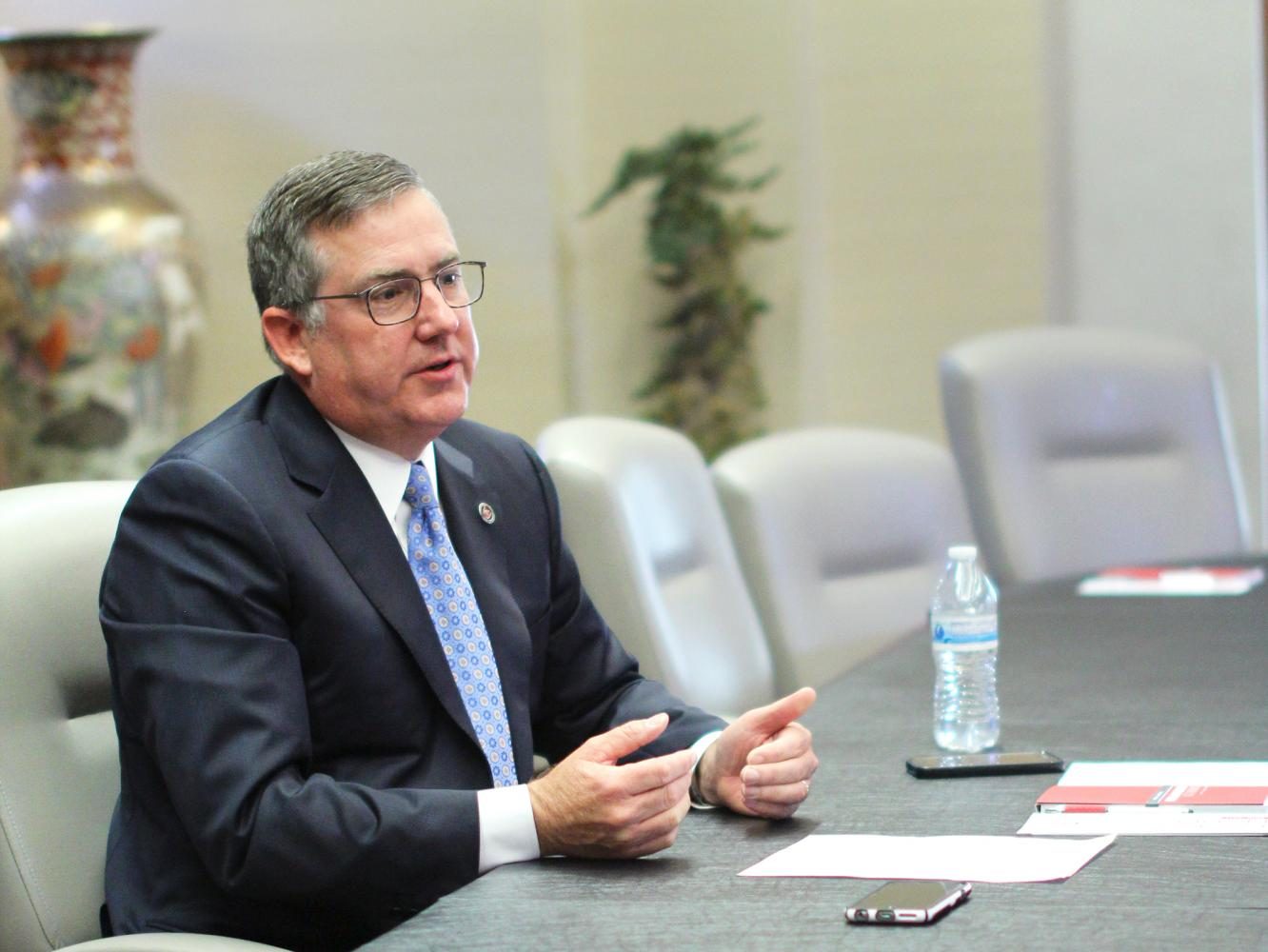Performing Arts program to end amid university-wide budget cuts
University aims to reduce $30 million deficit by $10 million by the end of the fiscal year
RACHEL SUN | Daily Evergreen File
Schulz notified WSU students and staff via email Monday night that the Performing Arts department will end after the current season.
October 23, 2017
President Kirk Schulz formally announced sweeping budget cuts, in an email sent out to WSU students and staff yesterday, which included ending the Performing Arts program.
The Office of Multicultural Student Services, Office of Equity and Diversity, Finance and Administration, Student Affairs and some colleges have lost or will lose staff, according to the email.
The announcement came the same day Performing Arts staff were notified of the severity of the cuts, said Phil Weiler, vice president of marketing and communication. The program will end after its last show in April.
WSU is trying to reduce spending by 2.5 percent, the email read, which means reducing the $30 million deficit to $20 million in the 2018 fiscal year.
The university should break even in three years if it sticks to the plan of spending $10 million less each year, Weiler said.
Performing Arts was cut because it was did not have ongoing funding, Weiler said. The program was funded by ticket sales, grants and gifts, which were not enough to keep it afloat.
“We need to have ongoing revenue to fund ongoing programs,” he said.
The email specifically noted the Performing Arts program was responsible depleting $1.6 million of the university’s reserves since its inception.
Schulz has been speaking of belt-tightening since taking office and has been discussing spending reductions since last summer.
Schulz warned of the waning reserves during last month’s Board of Regents meeting, where he pointed out that most of the university’s reserves were gone.
“We’ve got to build back a healthier reserve balance,” he told the Regents.
Schulz pointed to other university departments where positions were previously reduced or not renewed, including Athletics, Finance and Administration, Performing Arts, Student Affairs and various colleges.
Weiler said that if WSU continued spending at the current rate, the university would have totally run out of money in three years.
“In the past, we may have been not willing to make those hard decisions,” he said. “We’ve come to a point where we don’t have a choice anymore.”
WSU plans to bring in more money by enrolling more international students, Weiler said. The university would not enroll fewer Washingtonians in favor of international students. The enrollment plan would “not necessarily” mean fewer out-of-state students would be admitted, he said.
Programs lacking permanent funding would face cuts, according to the email. Some non-self-sustaining programs would face cuts as well as those not funded by tuition dollars.
“These decisions are painful. They will disrupt lives, and the consequences of eliminating and reducing positions will ripple throughout our community,” he wrote in the email. “But as much as I and members of the leadership team regret the necessity of these actions, they must be taken in order to restore the university’s overall fiscal health.”
















